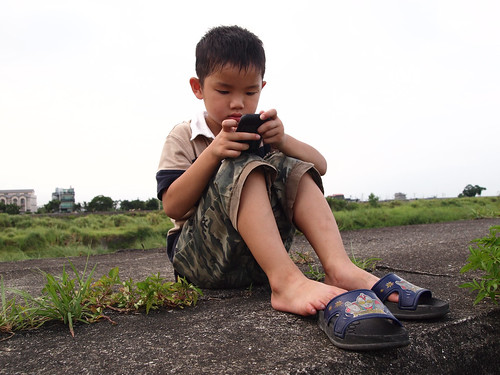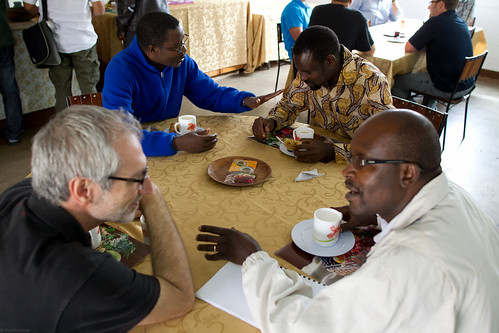 |
| Photo Credit: sheldon0531 |
A conversation with Andy Crouch about family and technology from Russell Moore
In this episode of the Signposts podcast, Dr. Moore offers an enlightening conversation with author Andy Crouch. They discuss how parents can create healthy boundaries with their children regarding technology use.
Standing Rock changed how I see America by W. Kamau Bell (CNN)
"I can't imagine what it must be like to be one of the indigenous people of the United States of America. I can't imagine watching the news every day -- as people debate whose country this is and who should be in charge of it and how to make it great again -- and hardly ever see your people brought into the discussion. As a black person in this country, I am always frustrated by the lack of attention my people's issues get. But at least the news and politicians are talking about not talking about our issues. Native issues are basically ignored."Jesus, the Frybread of Life by Deborah Pardo-Kaplan (Christianity Today)
Here's a great profile of the work of InterVarsity Christian Fellowship (IV) as it pertains to Native American college students. Cru's Native ministry -- Nations -- partners closely with IV and is mentioned in the article.
My Family’s Slave by Alex Tizon (The Atlantic)
"She was 18 years old when my grandfather gave her to my mother as a gift, and when my family moved to the United States, we brought her with us. No other word but slave encompassed the life she lived. Her days began before everyone else woke and ended after we went to bed. She prepared three meals a day, cleaned the house, waited on my parents, and took care of my four siblings and me. My parents never paid her, and they scolded her constantly. She wasn’t kept in leg irons, but she might as well have been. So many nights, on my way to the bathroom, I’d spot her sleeping in a corner, slumped against a mound of laundry, her fingers clutching a garment she was in the middle of folding."Why People Fight Online (The Barna Group)
"“Our most fraught conversations seem to have moved from the dinner table to the screen,” says Roxanne Stone, editor in chief at Barna Group. “However there are very few rules of etiquette in place for the internet yet. Where once family members could put a stop to an argument with a cry of ‘no religion or politics at the table!’ the digital world does everything to encourage such debates. And, of course, it’s a lot easier to be an anonymous jerk to a stranger than it is to yell at your mom. “Yet, there is a real person on the other end of that comment and online bullying has proven to be a truly destructive force,” says Stone. “The number of teen suicides attributed to it is but one extreme and horrifying example of its potency. Our level of civility and straight-up kindness should not be dependent on whether we are physically with a person or whether we know them. It’s easy to disembody the messages we read online and imagine our own posts are simply going out into an indifferent void. But real people are really hurt by the things said about and against them online."The Blessing of Conflict by Chanequa Walker-Barnes (Collegeville Institute)
"The therapeutic definition of conflict is simple: a difference of opinion between two or more people. In this sense, conflict was not inherently bad; in fact, it was evidence of the family’s capacity to allow and cope with self-differentiation among its members. In a healthy family system, members have both a strong sense of group cohesion as well as clearly developed individual identities. The way in which families managed the dinner exercise told us something about that. On this task, a healthy family was one in which people offered different ideas about what they wanted, and then they worked through it to agree upon a menu that accommodated some, although not necessarily all, of those differences."This Is All of Us - Mandy, Milo, Sterling and Chrissy Surprise Fans
NBC's "This is Us" became one of my favorite shows this past year. This video shows the stars of the show unexpectedly surprising fans of the show.



